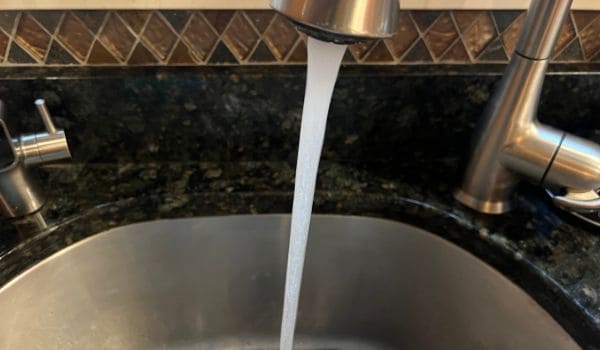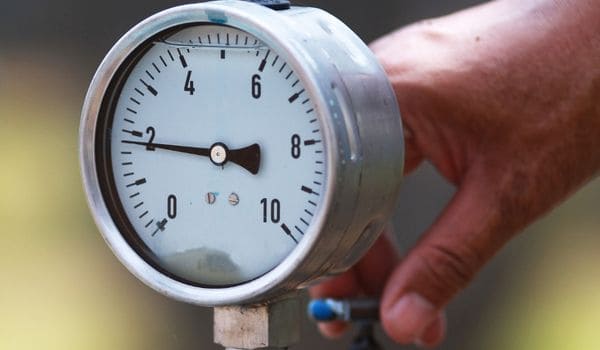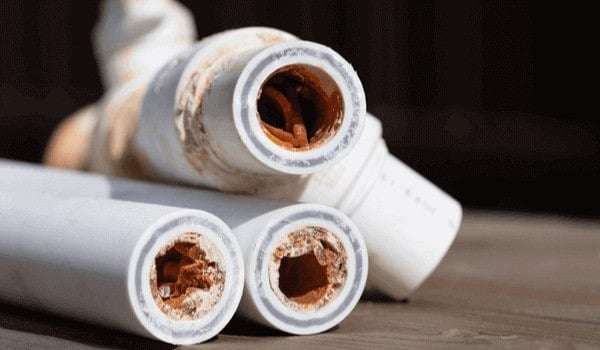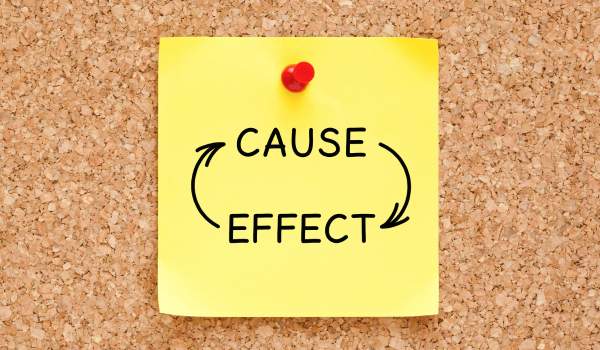
Ever step into a shower, only to get hit with a drizzle instead of a stream? Maybe someone flushed the toilet… or maybe your home’s water pressure is just off.
Water pressure affects more than just your morning routine — it impacts how efficiently your appliances run, how well your laundry rinses, and even the lifespan of your plumbing.
Whether you’re on city water or a private well, knowing what’s “normal” is the first step toward fixing low flow or spotting a potential problem.
📌 Key Takeaways
- 📏 Most homes have water pressure between 40–60 PSI (pounds per square inch)
- 🚿 Pressures above 80 PSI can wear down pipes, seals, and fixtures
- 🏠 Factors like elevation, plumbing layout, and pipe size all play a role
- 💧 Wells and city water systems each behave differently under pressure
- ⚙️ Booster pumps, softeners, or clogged filters can impact pressure too
- 👨🔧 A plumber can install a regulator or adjust your setup for optimal pressure
📊 Water Pressure vs Flow Rate: What’s the Real Difference?

Water pressure and water flow often get lumped together, but they’re not the same thing. Pressure is the force that pushes water through your pipes (measured in PSI), while flow rate is how much water actually comes out of the tap (measured in gallons per minute, or GPM).
High pressure doesn’t always mean high flow — and vice versa. A narrow pipe or clogged fixture can limit flow even with decent pressure behind it.
⚖️ Pressure vs Flow Comparison
| Metric | What It Tells You | Measured In |
|---|---|---|
| 📏 Water Pressure | The force pushing water through your plumbing | PSI (pounds per square inch) |
| 🚰 Water Flow | How much water comes out at the tap or showerhead | GPM (gallons per minute) |
| 🔍 Related, but not the same | Low flow could mean clogs, buildup, or undersized pipes | Needs both pressure + plumbing to be right |
To calculate your flow rate, grab a stopwatch and a bucket:
- Turn on the tap fully and time how long it takes to fill a 1-gallon container
- Divide 60 by the number of seconds it took — that’s your GPM
Example: If it takes 12 seconds to fill 1 gallon → 60 ÷ 12 = 5 GPM
🧠 Helpful to know:
A faucet might feel slow because of mineral buildup, not pressure issues. Learn more about how minerals affect your water — especially if you live in a hard water area.
🌡️ Water Pressure & Temperature: How They Interact
Ever notice how your shower slows down when the hot water kicks in? That’s not your imagination — temperature changes can affect both water flow and perceived pressure.
Most homes see slightly reduced flow when using hot water, especially if they rely on a tankless heater. These systems need time to heat water as it flows — and colder incoming water (like in winter) makes them work harder, which can slow the flow.
🔥 Why Hot Water May Feel “Weaker”
- 🚿 Tankless water heaters reduce flow during heating lag
- ❄️ Colder incoming water = longer heating time = slower delivery
- ⚙️ Sediment or scale in heater coils can restrict flow even further
🧠 Helpful to know:
A drop in hot water pressure could also point to buildup inside your heater. If you live in a hard water zone, mineral deposits can clog up your system and reduce output over time. A softener or descaling flush may help.
🏡 What Affects Water Pressure in Homes?

If your water pressure is too low — or too high — the cause might not be your pipes. There are multiple factors that influence the pressure coming out of your tap, and they can vary from house to house… or even room to room.
🔍 Common Factors That Impact Water Pressure
- 🏔️ Elevation: Homes at higher altitudes or on hills naturally experience lower pressure
- 🔁 Pipe size: Smaller or outdated pipes restrict water flow and reduce pressure
- 🏠 Distance from the main line: Farther from your municipal source = more pressure drop
- 🔧 Plumbing layout: Long pipe runs, elbows, or valves all create resistance
- 🚿 Appliance usage: Running multiple taps or machines at once drops pressure instantly
- 🏢 Municipal supply variations: Cities don’t supply constant pressure 24/7
- 💧 Well systems: Rely on pump cycles — pressure can vary based on tank settings and pump age
🧠 Helpful to know:
If you’ve already ruled out plumbing issues and still have poor water pressure, a whole-house system might be to blame. Filters that clog too quickly can strangle flow — here’s why that happens.
🔧 How to Fix High or Low Water Pressure

If your shower sometimes feels like a jet stream, and other times like a drizzle — you’re not alone. Most pressure problems boil down to a few common causes, and the good news is, most of them are easy to fix without tearing apart your plumbing.
⚙️ Quick Fixes for Low Water Pressure:
- 🚿 Clean or replace clogged faucet aerators
- 🔧 Check for leaks in pipes, hoses, or under sinks
- 🪛 Adjust or replace your pressure regulator if you have one
- 💪 Install a booster pump for homes with persistent low PSI
- 💡 Use larger-diameter plumbing during remodels or upgrades
🔽 Easy Fixes for High Water Pressure:
- 🛠️ Install a pressure-reducing valve (PRV) at your main line
- 🌬️ Add aerators to faucets or showerheads to soften output
- 💦 Monitor appliance usage — try not to run laundry, shower, and dishwasher at once
🧠 Helpful to know:
If you use a water softener, it can slightly reduce water pressure — especially if it’s undersized or overdue for maintenance. Always check flow specs when buying any filtration or softening equipment.
🪨 Can Hard Water Cause Low Water Pressure?

Absolutely — and it’s more common than you’d think. Hard water is packed with minerals like: calcium and magnesium. Over time, those minerals build up inside your pipes, fixtures, and appliances, slowly choking off flow and reducing pressure at the tap.
It might start with just a weak shower or slow faucet… but if left unchecked, it can shorten the life of your plumbing and water heater too.
⚠️ Signs That Hard Water Might Be the Culprit
- ❌ Your showerhead gets crusty or clogged often
- 🧼 You notice soap scum or dull laundry despite detergent
- 💧 You hear strange noises from your water heater
- 🚿 Some taps have great pressure, others barely trickle
💡 Helpful to know:
If you’re dealing with hard water, a properly sized water softener can help prevent buildup and improve overall flow. Just make sure it’s rated for your household size and daily water usage — undersized units can slow things down too.
🛠️ What About Well Water Pressure?

If you’re on a private well, your water pressure likely runs between 40 and 60 PSI — but it can vary depending on your pump system, tank setup, and even seasonal water tables. When pressure drops, it usually means the system needs adjusting — or something’s wearing out.
🧪 Common Causes of Low Well Pressure
- 🔧 Aging or undersized well pump
- 💨 Air leaks or pressure tank issues
- 🧱 Sediment buildup in pipes or filters
- 🏚️ Older plumbing with internal corrosion
- 🫙 Clogged or waterlogged pressure tank
- 🚫 Whole-house filters that aren’t cleaned regularly
💡 Helpful to know:
Low well pressure doesn’t always mean the pump is dying. Sometimes, it’s just a dirty filter or a pressure switch set too low. If your whole-house system hasn’t been flushed in a while, that’s a great place to start.
📈 How to Increase Water Pressure from a Well

If your faucets are barely trickling and your showers feel more like a drizzle, don’t worry — there are several ways to safely boost your water pressure if you’re on a well system.
The key is matching the right fix to the actual cause.
🔧 Smart Ways to Boost Well Water Pressure
- ⚙️ Adjust the pressure switch — many are set to 30/50 PSI by default, but bumping to 40/60 can make a noticeable difference
- 💧 Upgrade to a constant pressure system — these systems deliver steady flow even when multiple taps are running
- 🔁 Flush or replace clogged filters — especially if you’re using sediment or carbon cartridges
- 🚿 Check for tank issues — waterlogged or undersized pressure tanks can’t maintain consistent pressure
- 💪 Install a booster pump — great for homes at higher elevation or with long pipe runs
🧠 Helpful to know:
Sometimes the issue isn’t the pump — it’s friction loss. Older pipes with buildup (especially from hard water) restrict water flow no matter how much pressure your system tries to deliver. A water softener can help long-term, and repiping may be worth it in older homes.
Time for an upgrade? Here’s a roundup of systems we love.
🧪 Does a Whole House Filter Affect Water Pressure?

Yep — a whole house filtration system can lower your water pressure, especially if it’s not sized correctly or hasn’t been maintained. The more resistance a filter creates, the more it can slow the flow.
That doesn’t mean you should skip filtration — it just means you need to match your system to your household needs.
🚰 Why Filters Might Be Slowing Things Down
- 🧱 Clogged sediment or carbon cartridges
- 🚿 Undersized system for the number of bathrooms or water usage
- 🛠️ Improper installation or too many filter stages in a row
- 🔁 Old filters that were never replaced (or replaced late)
💡 Helpful to know:
If your filter clogs up fast or causes sudden drops in pressure, it might not be your water pressure at all — it could be an issue with your water quality. Learn more about why filters get dirty so quickly and what you can do about it.
✅ Final Thoughts
Whether your water pressure is too weak, too strong, or all over the place — there’s usually a fix. From aging pipes and clogged filters to low well PSI or hard water scale, even small issues can affect your pressure more than you think.
But now that you know what’s “normal,” you’ve got the upper hand.
Sometimes it’s as simple as cleaning an aerator or adjusting a pressure switch. Other times, a plumber might need to dig a little deeper. And if your water pressure issues started after installing a filter system, it may be worth reviewing your setup — not all systems are designed to handle high flow or large households. You can check out the systems we trust to find one that fits both your water quality and pressure needs.
Don’t settle for frustrating flow — with a few smart tweaks, you can enjoy strong, steady water at every tap.
 159 people found this helpful. Was this guide helpful to you?
159 people found this helpful. Was this guide helpful to you? 

